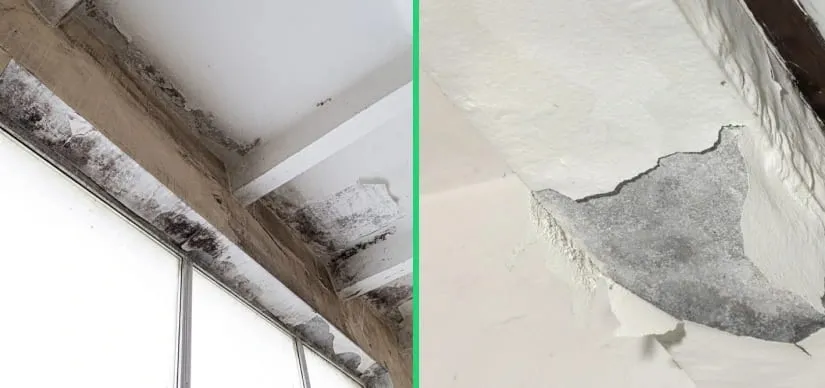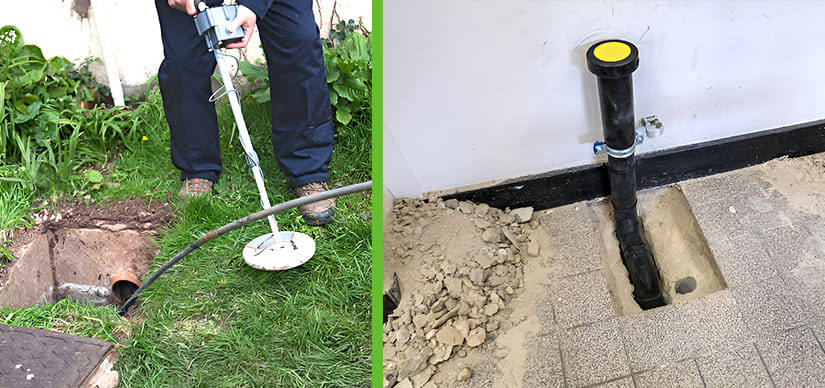How to Spot a Hot Water Slab Leak Without Any Special Tools
Views : 827

Introduction
Does your floor have any strange warm spots?
Even with all the hot water taps turned off, do you notice water running?
Has your water usage stayed the same, but your bill has suddenly increased?
Imagine discovering a weird, warm spot on the floor as soon as you enter your living room. At first, it appears to be harmless. Other symptoms occur soon after — a sharp rise in water costs, the sound of running water even with faucets off, and a mysterious, musty smell filling the space. A hot water leaky slab could be the hidden threat you have to deal with.
It’s not always necessary to use fancy equipment or pricey gadgets to find these leaks, even though they may result in severe damage if ignored. This guide will show you how to use your senses to spot leaks. With some awareness, you can detect a hot water leak and call the plumbers for slab leak repair in Anaheim.
What is a slab leak?
A slab leak occurs when a pressurized copper water pipe beneath the foundation bursts. The majority of houses constructed after 1960 in Anaheim have slab foundations made of poured concrete. Regretfully, compared to other foundation types, leaks beneath a concrete slab at the base are more expensive and difficult to fix.
If your house was constructed after 2010, there’s a good chance that PEX (plastic equivalent of under-slab copper water lines) rather than copper water lines will be running through your attic. This would make slab leak repair in Anaheim easier and safeguard your house against slab leaks.
How to Spot a Hot Water Leak Without any Special Tools
Touch and Feel
A hot spot over the floor is a very common sign of a hot water slab leak, so look for them throughout the house at the same time. To narrow this down, you can use both hands or—better yet—an infrared thermometer.
Keep Your Eyes Open
Your home’s flooring may contain important indicators of a leaky slab. Keeping an eye out for any changes in your floors’ condition is usually the first step in early leak detection in Anaheim. Look for signs of water entering beneath the slab, such as discoloration, hot spots, or unusual stains.
The way leak signs appear can also depend on the type of flooring. For example, hardwood floors can buckle or warp, carpets can feel hot or smell musty, and tiles can crack as a result of pressure changes from below.
Hear the Noises Carefully
When it’s quiet in your house, especially at night, your ears can play a critical role in spotting a leak beneath the slab. The only audible indication of a concealed leak is frequently the resonant sound of flowing hot water lines somewhere it shouldn’t be.
A consistent, low whooshing or hissing sound indicating water escaping from a pipe under pressure is what you’re listening for. Turn off every device and electronics that could produce background noise so you can focus on these sounds.
Examine Your Pipes
Finding an underground water leak requires carefully inspecting your plumbing system. Start by visually checking all hot water pipes exposed to sun and rain, especially those leading to appliances or under sinks. Look out for leaks, moisture, or corrosion signs. These may indicate a plumbing issue, possibly a leaky slab, which calls for prompt slab leak repair in Anaheim.
The Process of Testing Slab Leak
Turn off the valve and confirm that none of the hot water fixtures are leaking. When you turn the valve back on, there won’t be any flow through it and the pressure will remain constant if no leaks exist. The pressure will decrease over those two minutes if there is a leak. Water will then clearly flow via the valve to replace the lost water when you turn it back on.
Limitations
Even though you can carry out these checks, pinpointing the exact spot of the leak in the slab and figuring out its source frequently calls for specific tools and knowledge.
If a leak is confirmed, you should get in touch with a licensed plumber so they can carry out slab leak repair in Anaheim instantly.
Next Steps on Fixing a Slab Leak
Here are four methods to fix a slab leak
When there is just one leak with relatively quick access to the source, spot fixing performs best. The crew will drill through the concrete to repair a small portion of a leaky sewer or water pipe.
Rerouting a Pipe
The defective plumbing is not dug up; instead new pipes are installed and redirected around the slab, saving floorboards and concrete slabs from being torn out.
Epoxy Repair
The leaking pipe ends are located and prepared so epoxy can be inserted. The epoxy creates a new inner lining that strengthens and seals the pipe.
Complete Repiping
Install new pipes in place of the malfunctioning system. This is the best choice for older homes or plumbing networks with many leaks, where replacing broken pipes is preferable to attempting multiple spot repairs.
Final takeaway
Early detection of a hot water slab leak can save you thousands of dollars in slab leak repair in Anaheim and prevent major damage to your home. By paying attention to warning signs like warm spots on the floor, unusual noises, or a sudden increase in your water bill, you can catch the issue early.
Without any special equipment, you can locate the problem using simple methods such as monitoring your water meter or inspecting your plumbing. If you suspect a leak, act quickly and consider professional repair solutions like rerouting pipes or complete repiping to avoid costly long-term damage.
Don’t let a slab leak destroy your home! Take action now. At EZ Plumbing, we specialize in detecting slab leaks quickly and efficiently. Our team provides prompt slab leak repair in Anaheim to help you avoid expensive future repairs.
FAQS
How to detect a hot water leak under the slab?
Pay attention to warm spots on the ground, higher water bills, or the sound of water running when the taps are off to identify a hot water leak beneath the slab.
In what ways is slab leak repair in Anaheim done?
Leak detection in Anaheim is centered on precisely identifying the issue’s origin. Precise and effective leak detection is made possible by sophisticated instruments like infrared cameras and electronic listening devices. Solutions could include anything from small fixes to complete repiping, depending on how bad the leak is.



